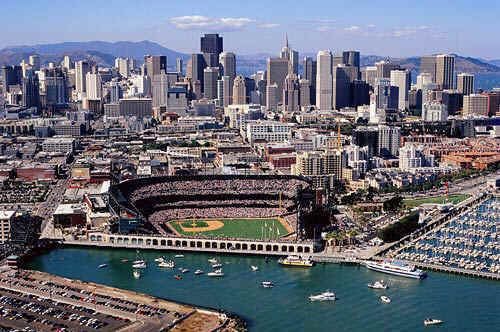Recently I said goodbye to a friend who left San Francisco for greener pasture. We have been friends for many years and it was sad to see her go.
But like many artist friends of mine who loved the city, the bay, its beautiful hills and blue sky, she felt it had somehow betrayed her. Once home for bohemians and artists and poets, San Francisco has increasingly become a city for the rich and high-tech workers.
The tension between the haves and have-nots in fact is rising fast where the high-tech workers buy up real estate in droves and leave those in the middle class floundering.
"I'd love to stay if I could afford something," my friend said. "But if you want to raise a family, you have to go elsewhere."
Enormous dilemma
This has become a common complaint. San Francisco -- indeed, the whole Bay Area -- is now facing an enormous dilemma: The economy is booming once again after a long bout of recession, but there's no affordable space left.
A small, 750-square-foot, one-bedroom apartment in downtown with a view is now renting out for nearly $4,000. San Francisco, in fact, has become the city with the highest rent in the nation this year.
"If you make $75,000 a year," remarked an economist recently, "you're barely middle class in San Francisco."
A woman moved here from Tokyo. She told me at a party that she found San Francisco just like another Tokyo. She lives in a tiny studio and pays almost $2,000 a month for it.
In my previous apartment building, the landlord fixed up the basement storage room and rented it to a family -- three people living where a dozen bicycles were once kept.
The California Budget Project report shows rental cost tripling in the last four years in the Bay Area. Someone recently offered to rent their couch for $1,075 a month.
Micro-apartments, in fact, are trending as well.
A recent 279 square-foot space was rented out for $1,850 a month amid the emerging mid-Market area.
Minimalism, in a sense, is beginning to take root in the US and in San Francisco becoming the norm. More luxury condos within the 400 to 500 square-foot range are being built and in San Francisco, the Japanese minimalist style has become the dominant style, the bonsai the precursor to the microchip, as it were.
Bigger was once said to be better, but what's chic and ultra-modern today -- what's green and affordable -- is smaller and streamlined.
The laptop takes no space at all, the iPod is the size of one's credit card, the stereo system that once occupied a generous portion of a living room now is so flat and ridiculously thin that you can hardly see it behind the rhododendrons, and the TV that once took too much space on top of the sideboard now hangs on the wall like a mirror.
No more yard
Thus, to live in San Francisco today, one must learn to give up the dream of home ownership, the idea of open space and the yard.
One learns to live comfortably in very small space. There's a price to pay for being in the center of the information age, after all.
Despite gridlocked freeways, longer commute times, greater air pollution, loss of open space, and, of course, urban sprawling and overcrowding, the young and hopeful continue to flock here.
But is it worth it?
One dot-com millionaire in his early thirties told me he is no longer sure. He owns a nice flat and he has stock options, but he waits in line at his favorite restaurant like everyone else, since everyone else is a millionaire, too.
As a writer, my hold on the city is sheer luck: I bought a condo during the recession and managed to stay.
Indeed, I miss all the graffiti artists, musicians, friends who have left for some place where they can afford studio space to paint or perform.
I miss, too, the poor working-class families who, as if overnight, disappeared to wherever housing can still be had.
I miss, that is to say, the old San Francisco. When I came here over three decades ago, it was a generous city, diverse not only in terms of race but of class.
In the mid-19th century, during the Gold Rush, San Francisco known as "Old Gold Mountain" in East Asia. The myth of a city by the bay filled with gold lured thousands of Chinese, and the rest of the world, to California.
In the 21st century, I wonder whether the old story hasn't become prophetic, considering the climbing real estate prices and an army of young people hoping to strike it rich working for high-tech companies with stock options.
These days, indeed, the city seems to belong to the highest bidders and the dogged homeless who, as if taking revenge, crowd the sidewalks in every neighborhood.
"The sidewalk?" I heard one of them say the other night. "Well, it's still free."
Andrew Lam is editor at New America Media and the author of "Perfume Dreams: Reflections on the Vietnamese Diaspora," "East Eats West: Writing in Two Hemispheres," and "Birds of Paradise Lost," a collection of short stories about Vietnamese refugees on America's West Coast, which won the Pen/Josephine Miles Literary award.

